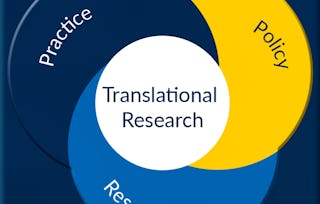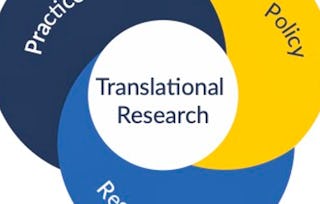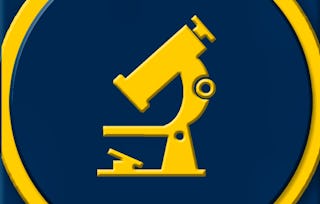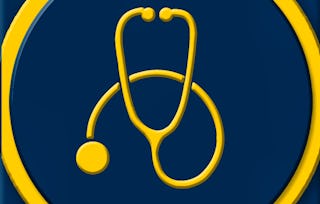Translational science seeks to speed up the process of moving research discoveries from the laboratory into healthcare practices. Numerous scientific and organizational roadblocks can act as obstacles along the path of translation and ultimately hinder the speed of progress in medical research. The National Center for Advancing Translational Sciences (NCATS) was established by the National Institutes of Health (NIH) to transform and accelerate the translational research process, with the intended result of getting treatments to more patients faster. The field of Translational Science aims to bridge these gaps by:

Introduction to Translational Science
Seize the savings! Get 40% off 3 months of Coursera Plus and full access to thousands of courses.

Introduction to Translational Science

Instructor: Martin S. Zand, MD, PhD
9,696 already enrolled
Included with
120 reviews
What you'll learn
Students will be able to define translational science.
Students will be able to explain how translational science can accelerate research discoveries to impact healthcare practices.
Details to know

Add to your LinkedIn profile
3 assignments
See how employees at top companies are mastering in-demand skills

There are 3 modules in this course
Instructor

Offered by
Explore more from Basic Science
 Status: Free Trial
Status: Free TrialUniversity of Michigan
 Status: Free Trial
Status: Free TrialUniversity of Michigan
 Status: Free Trial
Status: Free TrialUniversity of Michigan
 Status: Free Trial
Status: Free TrialUniversity of Michigan
Why people choose Coursera for their career

Felipe M.

Jennifer J.

Larry W.

Chaitanya A.
Learner reviews
- 5 stars
72.50%
- 4 stars
19.16%
- 3 stars
2.50%
- 2 stars
4.16%
- 1 star
1.66%
Showing 3 of 120
Reviewed on Sep 12, 2024
I knew very little about this topic prior to the course, but this course does a great job a providing a quick yet detailed overview.
Reviewed on Apr 19, 2018
The course shows the variety of how Translational Science is done. I was surprised how it is conducted from several people. The examples made it more clear where
Reviewed on Mar 25, 2020
Good Introduction to Translational Science. Keep up your good work.

Open new doors with Coursera Plus
Unlimited access to 10,000+ world-class courses, hands-on projects, and job-ready certificate programs - all included in your subscription
Advance your career with an online degree
Earn a degree from world-class universities - 100% online
Join over 3,400 global companies that choose Coursera for Business
Upskill your employees to excel in the digital economy

